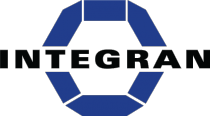Information Update - New warnings regarding the use of certain sedative and anesthetic drugs during pregnancy and in early childhood
OTTAWA, Dec. 22, 2017 /CNW/ - Anesthetics and sedatives are used to prevent pain during surgery and other procedures or tests. However, the use of certain sedative and anesthetic drugs may have an impact on children's developing brains.
Health Canada is advising Canadians and healthcare professionals that new safety warnings will be added to the product safety information of the following sedative and anesthetic drugs when they are used in early childhood and during pregnancy: Diprivan (propofol), Ketalar (ketamine), Sevorane (sevoflurane), Suprane (desflurane), Forane/Isoflurane USP (isoflurane), Ativan (lorazepam), midazolam, phenobarbital and thiopental.
The Department conducted two reviews to assess the potential risk of adverse effects on the development of children's brains when certain sedative and anesthetic drugs are used in pregnancy or in early childhood.
The safety review for Diprivan (propofol), Ketalar (ketamine), Sevorane (sevoflurane), Suprane (desflurane) and Forane/Isoflurane USP (isoflurane) concluded that repeated or lengthy use of these drugs (more than 3 hours) during pregnancy or in children up to approximately 3 years of age may potentially lead to adverse effects on the development of children's brains, such as intellectual and learning disabilities, and problems with communication and movement.
The safety review for benzodiazepines (Ativan [lorazepam] and midazolam) and barbiturates (phenobarbital and thiopental) concluded that there is limited evidence linking the use of these drugs by pregnant women and young children to adverse effects on the development of children's brains. However, it is important to note that many of these sedatives may often be used in combination with other intravenous and inhaled anesthetics, which were found to have a risk of adverse effects related to the functioning of the brain.
While Health Canada is adding safety warnings on these drugs, the Department will also look into working with the Drug Safety and Effectiveness Network to further study the link between the use of sedative and anesthetic drugs and the development of the brain.
The product safety information for Ativan (lorazepam), midazolam, Diprivan (propofol) and Ketalar (ketamine) currently warns that they should not be used during pregnancy. The product safety information for phenobarbital, Sevorane (sevoflurane), Suprane (desflurane) and Forane/Isoflurane USP (isoflurane) currently warns that these drugs should be used during pregnancy only if the benefit outweighs the risk. The restrictions for use in children vary between the drugs. Thiopental is not currently marketed in Canada.
Health Canada will be working with the manufacturers to update the Canadian product safety information for these drugs to inform parents and healthcare professionals about this potential risk.
Information for pregnant women, parents, caregivers, health professionals and patients
-- Health professionals and patients should weigh the risks and benefits
when making any decisions on the necessity and timing of a procedure.
-- Pregnant women, parents and caregivers should discuss any questions or
concerns about the safety of sedatives, general anesthesia and the
necessity of a procedure with their healthcare professional.
-- Side effects associated with these drugs should be reported to Health
Canada.
Related links
-- Summary Safety Review for sedative and anesthetic drugs
(benzodiazepines/barbiturates): Ativan (lorazepam), midazolam,
phenobarbital and thiopental
-- Summary Safety Review for other sedative and anesthetic drugs: Diprivan
(propofol), Ketalar (ketamine), Sevorane (sevoflurane), Suprane
(desflurane) and Forane/Isoflurane USP (isoflurane)
Stay connected with Health Canada and receive the latest advisories and product recalls using social media tools.
Également disponible en français
SOURCE Health Canada


